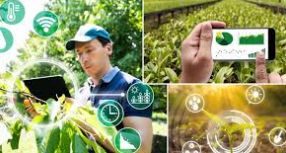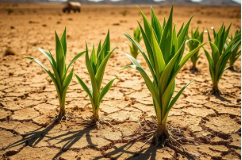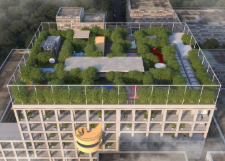
A recent global analysis has raised serious concerns over the impact of modern, intensive agricultural practices on soil health, warning that unsustainable farming methods could pose a major risk to long-term food security.
The report highlights that widespread use of chemical fertilizers, monoculture cropping, and over-tillage is contributing to the degradation of soils worldwide. Healthy soils are essential for nutrient cycling, water retention, and crop productivity, and their deterioration threatens the sustainability of global food systems.
According to the study, the erosion of soil fertility is not just a local issue but a global concern, affecting food production, biodiversity, and rural livelihoods. The authors warn that without urgent intervention, soil degradation could significantly reduce crop yields, increase vulnerability to climate change, and escalate food insecurity, particularly in regions heavily dependent on agriculture.
The analysis calls for a shift toward sustainable agricultural practices, including crop rotation, organic amendments, reduced chemical inputs, and conservation tillage, to restore soil health while maintaining productivity. It also emphasizes the need for policy support and global cooperation to ensure farmers have the knowledge, tools, and incentives to adopt soil-friendly farming practices.
“Soil is the foundation of our food systems. If we continue to degrade it at the current rate, the long-term consequences for food security and human well-being could be catastrophic,” said a lead researcher involved in the study.
The report serves as a stark reminder that while modern agriculture has dramatically increased food production over the past decades, unsustainable intensification without regard for soil health could undermine these gains, making the adoption of regenerative practices critical for future generations.
Experts urge governments, agribusinesses, and farmers to collaborate on strategies that protect and restore soils, ensuring that agriculture remains productive, resilient, and sustainable in the decades to come.














